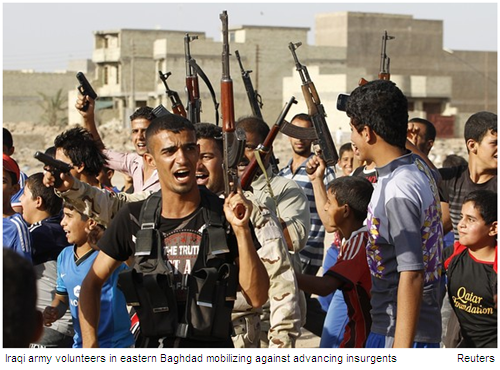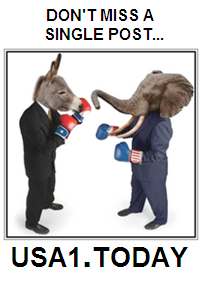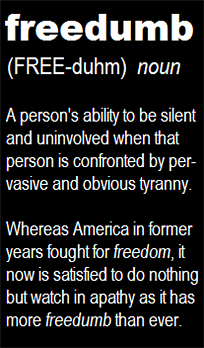Short-sighted policies of the United States and its Middle East allies are taking their toll with costly, dangerous results: a growing number of nations in the region on the brink of disintegration or becoming failed states.
To be sure, national governments are responsible for their actions. The autocratic, sectarian policies of Syria’s President Bashar al-Assad and Iraqi Prime Minister Nuri al-Maliki have pitted their ethnic and religious communities against one another in civil wars that could foment militant Islamist, jihadist statelets.

NORM ‘n’ AL Note: Does this look like an army that will withstand an assault by trained and blood-thirsty sectarian radicals?
Poorly devised policies by the U.S. and its allies, chiefly Saudi Arabia and Turkey, have helped shape an environment in which the likes of Assad and Maliki believe they can get away with murder or feel that their options have been cut off. It has also encouraged policies that often have more to do with settling scores than with rebuilding and reshaping nations.
The U.S. failed to realize that the 2003 toppling of Iraqi President Saddam Hussein would pave the way for rule by a Shiite majority that had been suppressed for decades and whose return to power would rewrite the region’s geopolitical map.
Hopes that Iraq’s post-Saddam Shiite rulers would reach out to their Sunni counterparts were quickly dashed. A misguided decision by Iraq’s post-Saddam American administrators to ban Baathists from serving in the military or public office put thousands out of work and sent the message that Sunnis were not truly welcome in the new Iraq. That message was reinforced when Turkey and deeply anti-Shiite Saudi Arabia refused to cooperate with the new government in Iraq.
As a result, Iraq’s Sunnis as well as Kurds proved more interested in ensuring that Shiites were seen to be incapable of ruling the country than in attempting to forge a common future.
Sunnis were smarting from the fact that after monopolizing power since the days of the Ottoman empire, they were cast in the role of a minority seeking to ensure their communal rights. Their resentment of Shiite majority rule was fuelled by a Saudi and Turkish refusal to reach out to Maliki, the politician whom the U.S. initially viewed as least likely to cozy up to Shiite-led Iran.
The Saudis and the Turks wrongly feared that any Iraqi Shiite leader would tip the region’s geopolitical balance of power toward Iran. Yet stymied by significant domestic players as well as his neighbors, Maliki had no choice but to move closer to Iran even while trying to maintain distance.
In concert with his Turkish backers, Iraqi Kurdish leader Masood Barzani consistently limited the scope of Shiite rule by laying the groundwork for future Kurdish independence and shielding Iraqi Kurdish areas from the bloody sectarian struggles engulfing the country. Barzani has been carving out an independent Kurdish state by expanding the autonomous zone that Kurds created for themselves in the early 1990s.
Similarly, much to the frustration of Turkey and the Gulf states, the Obama administration shied away from enabling Syrian rebels to topple Assad. The U.S. cited seemingly logical reasons: the lack of unity among anti-Assad groups; fear that militant Islamist jihadist groups would fill the vacuum, and concern that conflict in Syria would destabilize the region.
Three years later, the very things the U.S. was keen to avoid have become a nightmarish reality: jihadists are the backbone of the resistance in Syria, and are advancing in Iraq against a crumbling Iraqi army that was clearly unprepared or unwilling to take over from U.S. troops. Turkey and the Gulf states have abetted and enabled the militant Islamist and jihadist advances with financial and other aid, helping create a monster they are unable to control.
And while the Islamic State in Iraq and Syria (ISIS) is focused currently on Shiite rule in Iraq and the Alawite dominance in Syria, a continuously successful ISIS will turn its attention to rulers in the Gulf whom it views as feudal usurpers of power.
The Iraq crisis has left U.S. national security as well as the security of the energy-rich Gulf states facing its most serious and imminent threat in more than a decade. A step towards a resolution would be for the Gulf states and Turkey to support U.S. pressure on Maliki by dropping their bigoted approach to Shiites and persuading Iraqi Sunnis to forge a consensus in which everybody feels they have an equitable place in a new Iraq.
[by James M. Dorsey, writing for MARKETWATCH]
NORM ‘n’ AL Note: Once again our wise and benevolent Obama administration, after announcing its intended departure date from Iraq a few years ago, and now announcing its departure date from Afghanistan in the near future, is telling those who want to usurp power that it’s there for the taking. In Iraq we even left behind tanks, trucks, guns, and great mountains of other war materiel, for the radical insurgents to use as they sweep across the country. Presumably we will be just as generous to the Afghans. After all, it’s only money, and money is only printed paper.
………………………………..
As always, posted for your edification and enlightenment by
NORM ‘n’ AL, Minneapolis
normal@usa1usa.com
612.239.0970



























































































